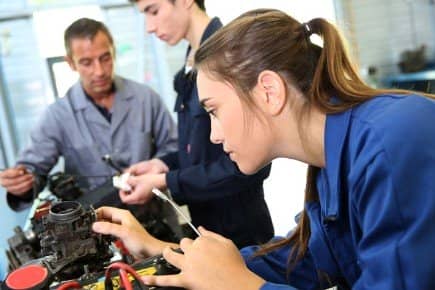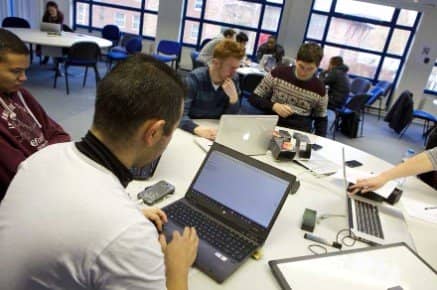Study In Australia
About Australia
Why should you study in Australia?
World class education
Many factors contributed to the uniqueness of Australia, like its topography, climate, and people from different cultural diversity. Being the 6th largest country in the world and only island continent. Australia is the home of many International Students from all over the world. Australia is recognized as a great place to live but it offers a world-class academic education system. Australia is proud of the individuals who have studied and worked in Australia. (whether they were born here or another country) and gone on to achieve great things and contribute to making the world a better place. more info

Global Recognition
By studying in Australia, you will receive a qualification that’s recognised and sought after around the world. information. The Australian Qualifications Framework (AQF) allows students to easily move through the education system here and provides an easy way for countries around the world. To recognize your qualification, and issue the comparable qualifications for local use. more info

Australia – a research intensive country
Australia has a long and proud tradition of world class research and development that has benefited millions around the world. From the discovery of penicillin in 1945 and the discovery of acquired immunological tolerance in 1960, through to observations which led to the discovery of the accelerating Universe in 2011. Australia has a proud record of contributing to the benefits of the world. more info

Highly rated by International Students
In 2012, the Australian Government, in collaboration with peak education bodies and state/territory government education departments, conducted a survey of current international students to obtain information about their living and learning experience in Australia. The key findings of the survey included:
87% of international student respondents are ‘satisfied’ or ‘very satisfied’ with their overall experience in Australia.
86% of international student respondents are ‘satisfied’ or ‘very satisfied’ with their study experience in Australia.
88% of international student respondents are ‘satisfied’ or ‘very satisfied’ with living in Australia. more info

World class learning environment
By choosing to study in Australia, you will join hundreds of thousands of students from Australian and all over the world including many from your home country who are discovering new friends and opportunities in this beautiful country. You will work closely with classmates, researchers, instructors, and other faculty collaboration is a key part of our students’ successes. And in many cases, you can gain practical and hands-on training in the industry in which you are studying. This combination of teamwork, shared learning, and industry focus will provide you with a leading edge for your further studies and career. more info

Quality Assurance
Australian government ensures that international students receive the high-quality education they expect. more info

Study In Australia - Top Universities In Australia
[smls id=”4849″]
Take me to Australia (Our process)
At Education Management consultancy (EMC), we help you with your higher education needs right from the get go. Our educational consultancy services help you to identify the best schools and universities for your needs depending on your goals and ideas for your life and career. We help you understand the intricacies of the college or university application. We prepare you for the personal essay and help you show off a well-rounded side to yourself. We show you how to best present yourself through your essay and your application so that the admissions officers see that you are a stand out applicant and deserve a seat. At very 1st stage we assess your suitability for the school/universities. We would not like you to waste your time if you will not be eligible for admission and qualify for visa. Get the free consultation completed online. Our counsellor will respond to you as soon as they have assessed and may request for more information if required. Once the assessment is completed will provide your options to choose different university and cost associated with it for your to make informed decision. Assess your suitability
Documents required for the admission
· Copy of passport
· English proficiency test result
· All qualifications’ copy and transcripts
· Resume (Biodata)
Note: In some cases, you may need to provide Statement of purpose and financial documents to school/university.
The visa procedure can be quite exhausting, especially for international students some of whom are going through such intense scrutiny for the first time. Also before you even sit for the visa interview, you must ensure that you fulfil all the prerequisites of a visa that is, a valid Letter of Offer and Confirmation of enrolment from a recognised Australian college or university, proven English language proficiency in the form of a valid IELTS or TOEFL score, an offer letter, health insurance, and enough financial means to satisfy all your requirements throughout the extent of your stay. You must also satisfy the requirements under Genuine Temporary Entrant Requirement and the Australian Values Statement. You also need to prepare for the visa interview conducted by immigration officers.
What is required prior to visa lodgment
Confirmation of Enrollment
Confirmation of enrollment (COE) is issued once the student has been issued with a letter of offer, its accepted and fees are paid to the school/university.
Genuine Temporary Entrant Requirement
You must satisfy that you genuinely stay in Australia temporarily. Many factors are considered in assessing these criteria such as your personal circumstances, the value of the course of study, your immigration history, and anything that is relevant in your intention to stay in Australia. more info
English Language Skills (IELTS or other acceptable testing system)
· You must satisfy English language proficiency
· Test taken must not be older than two years
· International English Language Testing System (IELTS)(Academic or General)
IELTS test score of:
5.5 or above for direct entry into a course
4.5 with an ELICOS course up to 20 weeks more info
Note: English requirement for the school/University may vary depending upon the course. Generally, it may be higher than the immigration requirement.
Financial Requirement
You must have enough money to pay for your tuition fees, travel and your living expenses for yourself and your dependent family for the duration of your stay in Australia. Fund should be genuinely available. more info
Health Requirement
You must undergo a health check depending on your personal circumstances, including your country of citizenship, time spent in another country during the last five years. This applies to you and any dependent family members included in your application. more info
Health Insurance (OSHC)
You must have health insurance (Overseas Student Health Cover) for yourself and your accompanying family member over the proposed duration of your course in Australia.
Character Requirements
You must provide a Police Clearance Certificate from your country of citizenship and from other countries where you have lived for 12 months or more within the last 10 years. more info
Academic Records and History
These are your academics records such as Diploma, Transcripts of Records, Certificates.
Australian Values Statement
You must declare that you will respect Australian values and obey the laws of Australia. For this visa, the values statement is included in the general declaration section of the visa application form. When you sign the visa application form it means you will also be signing the values statement. more info
After visa grant, student gets too excited and looking forward to arrive in Australia, generally forget some important aspect of Australian life and culture. We encourage student to take the following actions:
Organise your travel ticket
You can simply book with EMC Travel at a very competitive rate.
Organise your accommodation
If you need homestay or accommodation, you must contact EMC directly or you can search for accommodation/homestay yourself following Homestay & accommodation link on the EMC corporate website. If you have any relative or friend you must inform them in well in advance so that they can organise their busy study and working schedule to organise accommodation for you.
Organise your airport pickup
If you have friend or relative, you can notify them in advance to pick you up from the airport. If this is not the case, you can contact EMC to organise airport pickup.
Learn your visa condition
You must check your visa condition. You must abide by all conditions stated on your visa. If something you are unsure, you can contact EMC and will explain to you.
Learn about the place
Whichever city you are going to, you should be familiar with the city and place. Check how to travel in and around the city. Check how to to get to the school/university from the place where you are going to stay.
Learn about weather conditions
Different city has different weather conditions. You should be familiar with the weather of the city where you are going to stay. Prepare your clothing accordingly.
Check your travel documents
You need to ensure that you have more than 6 months passport validity. Keep your copy of Visa grant notice.
The key is to be a confident travler.
At EMC Australia, we strive to ensure the best for you always. We will help you with arranging accommodations when you arrive in Australia and help you adjust in with Australia’s diverse student community with students from more than 50 countries from all over the world. For international students there can be quite a bit of culture shock and thus we also prepare you to best acclimatise with Australia’s culture and customs so that you can be at ease right from the moment you set foot in Australia.
Subject Area -Choose What You Want to Study ?
Learn about weather conditions in different cities in Australia
Sydney
Sydney has a sunny climate with warm summers and mild winters. Summers in Sydney is from December to February with average temperatures range from 18.6-25.8 °C. From March to May, this is Autumn in Sydney when the temperatures fall between 14.6-22.2°C. The coolest months are June to August. In June, the rainfall is highest. In July, this is coolest month with average temperatures reach13°C. Especially, from September to November, spring in here is warmer with average temperatures range from 11-23°C.
Melbourne
Melbourne warm up in summer with temperatures between 14-25,3°C from January to February. Weather’s Autumn is cooler with average temperature ranging from 10.9-20.3°C. In winter, average temperature is from 6.5-14.2°C. Snow falls in the north-east of Victoria. Weather is cold and cloudy. In Spring, temperatures range from 9.6-19.6°C. This season is the most variable of the year.
Brisbane
During summer, average temperatures range from 21-29.8°C. The city has highest rainfall which can bring thunderstorm and occasional floods. Autumn in Brisbane is from March to May when temperatures drop between15-25°C. Weather in winter is generally dry and mild with mean temperatures from 11-21°C. And Spring is almost similar to autumn which average temperature between 15-25°C.
Adelaide
Summer in Adelaide has average temperatures between 16.7-28.6°C which rainfall is sparse. From March to May, autumn is cooler with temperature from 12.7-22.7°C and a little rainfall. During winter, from June to August, the average temperatures drops from 8 to16°C.
Canberra
In Summer, from December to February, average temperatures drop to between 12.6-27°C. January is hottest month when temperature rise to 13.2-28°C. In autumn, weather is mild in days and cool in nights. Average temperatures range from 6.8-20°C. From June to August, winter in Canberra is cold with temperature between 1-12°C and below 0°C at night. Spring has average temperatures between 6-19°C. The city has low rainfall compared with other cities in Australia.
Darwin
Darwin has two distinct seasons which are the wet season and the dry season. The wet season is from November to April which is high humidity, monsoonal rains and storms. The average temperatures drop to between 24.7-32°C. The dry season is from May to October which is warm, sunny in days and cool in nights. Temperatures typically range from 21.6-31.8°C.
[wpsl]
















